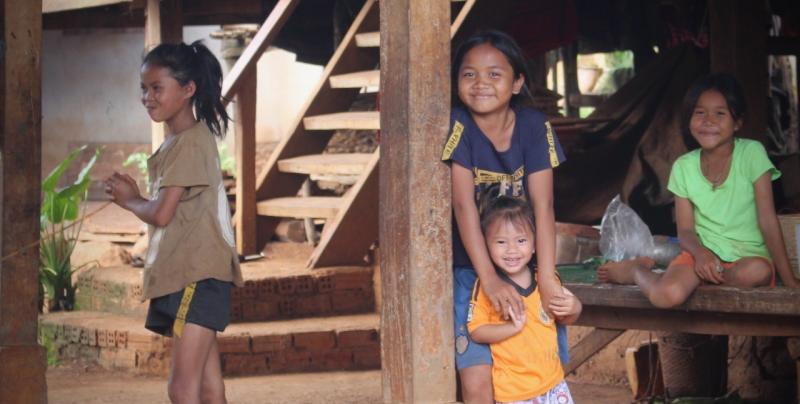

On the 20th of July, the Lao Women’s Union celebrates its 66th birthday.
In 1955, the Lao Women’s Union was established to protect the rights of all women in Lao PDR. This mass organisation works to represent the interests of every woman through its national network of more than one million members extending from Vientiane Capital right down to villages, which is crucial in a country where 68% of the population live in rural areas.
An important part of the Lao Women’s Union’s work is advocating for the protection of women’s rights under the law, especially their right to live free from violence and eliminate gender-based violence against women from all sections of society.
In 2004, the Law on the Development and Protection of Women was passed by the National Assembly, leading to the establishment of shelters, counselling services and rehabilitation programmes for survivors of violence. Ten years later, in 2014, the Law on Preventing and Combatting Violence Against Women was adopted. This law expanded support services for survivors and guaranteed their access, in line with CEDAW recommendations.
But how does the Lao Women’s Union work to turn these laws into action?
At the central and national level, the Lao Women’s Union carries out advocacy work to ensure women’s protection from violence in public and private spheres. Change in perceptions on traditional gender norms and gender-based violence is promoted through national campaigns, including by increasing awareness among both men and women and challenging gender stereotypes. The Lao Women’s Union also work closely with line ministries to identify areas for improvement to strengthen the government’s capacity and ensure all agencies fulfil their respective roles in the fight against gender-based violence in Lao PDR. This fight requires coordination among many actors, from healthcare, to policing, businesses, media, and community organizations.
“Protection begins from understanding the meaning of violence, but many people think violence is only when serious, physical harm is inflicted”, says Ms. Soukphaphone Phanit, Director General of the Department of Planning and International Cooperation at Lao Women’s Union. She adds, “It is part of our job at the Lao Women’s Union to make sure that everyone, not only women but also men and all service providers, are fully aware of women’s right to live free from violence”.
The Law on Preventing and Combatting Violence Against Women and Children defines four forms of violence: physical, sexual, psychological, and economic; meaning that under the law, women are protected against physical violence or behaviour that harms their reputation, dignity, or self-esteem. Infringement on women’s sexual rights or economic independence are also considered acts of violence.
On the ground, the Lao Women’s Union Counselling and Protection Centre for Women and Children (the Centre) provides immediate assistance and shelter to survivors of violence. When women do reach out for help, the Centre can provide legal, economic, and psychosocial support in addition to assistance in reintegrating into the family and society after experiencing violence. Some women go to the Centre directly for help but more often than not, they are referred by doctors who realize their patients need more than medical assistance to recover.
Sadly, it was reported in 2015 that just 2% of survivors of violence reached out for help. Violence against women continues to be tolerated in Lao society and most women hesitate to speak out, fearful of being stigmatized by their communities for doing so.
In a country comprised of 50 ethnic groups with distinct languages and cultures, changing behaviours and perceptions towards violence is a major challenge to eliminating gender-based violence against women.
The Lao Social Indicator Survey 2018 reported that 16% of men believed that a husband was justified in beating his wife when she did not adhere to societal expectations. 30% of women agreed. In 2012, it was reported that 49% of men believed it acceptable to be violent against their wives, while 58% of women thought it was acceptable. Clearly progress has been made, but much more work is needed to end gender-based violence against women.
During the second wave of COVID-19, Lao PDR went into strict lockdown at the end of April 2021 and many women found themselves confined with their abusers. Well into the third month, the Counselling and Protection Centre has reported an increase in calls on their hotline and an increased number of requests for counselling and safe shelter.
“On top of providing assistance, we need to pay equal attention to spreading knowledge on women’s rights to dignity and protection from all forms of violence and discrimination – because life will never be the same for survivors of violence”, says Ms. Bounleua Chanthaphomma, Director General of Counselling and Protection Centre for Women and Children.
The Lao Women’s Union, in partnership with the Korean International Cooperation Agency (KOICA), UNFPA, UNDP and Korean NGOs: Tacteen Naeil and KDS, are working to ensure that well-coordinated and quality services are provided to survivors of violence. “Not one piece can move on its own and all of the services need to move in harmony, under one umbrella protecting women from violence,” says Ms. Soukphaphone. The hope is that one day, Lao Women’s Union will be able to focus their attention preventing cases before they happen, instead of addressing the consequences. And while many cases continue to happen behind closed doors, the Lao Women’s Union will continue to work for another 66 years and more to bring this issue out in the open so Lao women can enjoy a life free from violence.
Originally published on www.la.undp.org